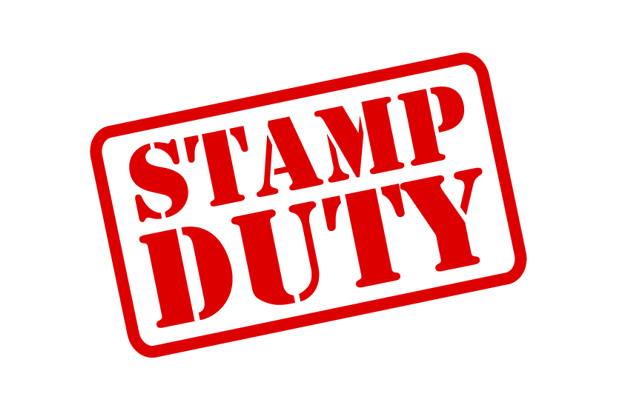
A national policy to significantly raise the government’s income through the collection of stamp duty on financial transactions has run into a fresh storm. The commotion erupted after a member of the House of Representatives, Muhammed Kazaure, claimed that part of the revenue being collected as stamp duty had not been remitted to government coffers. Promptly, the Presidency debunked the lawmaker’s claim, describing it as baseless. In a country where transparency is in short supply and public trust has been severely eroded, the assertions by both parties need to be critically interrogated and the truth unravelled.
The allegations by the lawmaker, who represents the Kazaure, Roni, Gwiwa, Yankwashi federal constituency of Jigawa State, are weighty. He contends that in the past few years, the banks and other financial institutions have collected N89.09 trillion as stamp duty. Instead of remitting such as required by law, Kazaure alleged, they colluded with public agencies to withhold 40 per cent of the funds, while only 60 per cent was remitted.
Swiftly, Garba Shehu, a spokesman for the President, Major-General Muhammadu Buhari (retd.), fired back at Kazaure. He said the stamp duty collection was not anywhere near N89 trillion. He recalled that Buhari had discontinued an earlier effort to trace the sum of N20 trillion that was allegedly raised from stamp duty 2013-2016 when the consultants to the project demanded 7.5 per cent of the sum as their fee.
“The entire banking sector deposit is not even up to half of N89 trillion,” Shehu stated. “Indeed, if the Federal Government can find N89 trillion, it can pay off all its debt…. So, the claim by these so-called consultants and the disbanded committee is totally ridiculous and a complete mockery.” This rebuttal addresses only one part of the poser.
Curiously, Shehu avoided the crux of the matter; he did not provide the details of the revenue realised from the tax since Buhari assumed office in May 2015. This, above all, is what Nigerians want to know; the public has an inalienable right to know how much, and the full details of the stamp duty revenue. Without a doubt, so much money has been generated from the policy as bank transactions, including via electronic channels, have soared. It is also curious that it was the Presidency that responded, not the Federal Inland Revenue Service, or the Ministry of Finance.
By law, the Stamp Duty Act imposes “the rate of 0.75 per cent on the authorised share capital at incorporation of a company or on registration of new shares.” Banks and financial institutions are required to collect a levy of N50 on every eligible transaction above N10,000.
With the billions of transactions above the N10,000 threshold being done, enormous revenue is apparently being collected. The Nigerian Inter-Bank Settlement System said that e-payments surged by 78.04 per cent to N220.93 trillion in October 2021, up from N124.09 trillion in October 2020. From January to October 2020, the total volume of transactions was 1.55 billion, amounting to N120.42 trillion in value; the total volume of e-transactions in the same period in 2021 increased by 79.17 per cent to 2.76 billion, valued at N215.76 trillion. Assuming that just half of the transactions were above the N10,000 threshold, substantial revenue should have accrued to the treasury.
But typical of public accounting practices in Nigeria, the revenue generated from the duty has been shrouded in secrecy. The initial controversy was about the N50 stamp duty charge on every transaction, which was deemed excessive. To douse the protest, government raised the eligible limit to N10,000 which many customers still regard as too high.
In contrast, the United Kingdom does not charge stamp duty land tax on transactions below £250,000 pre-COVID-19. To ameliorate the impact of COVID-19, the British government raised the minimum eligible transaction to £500,000. The Nigerian government should also review the N50 charge downwards and raise the eligible transaction limit. The Central Bank of Nigeria should ensure strict compliance and prompt remittance by the banks.
Exasperatingly, the Nigerian government persistently loses revenue through its carelessness, and endemic corruption. The Treasury Single Account is an example; in 2015, the CBN fined two banks N4.8 billion for non-compliance with the TSA over a Nigerian National Petroleum Company Limited transaction of N96.4 billion. Another bank was levied N4 billion on the same NNPC account. In April 2016, the CBN fined four banks for various offences, including non-compliance with TSA remittances.
Huge income is also lost through the Integrated Personnel and Payroll Information System; neither does government collect its taxes as and when due. Apart from the so-called “ghost workers,” the IPPIS is so porous that the suspended Accountant-General of the Federation, Ahmed Idris, and his accomplices, who are now on trial, were allegedly able to loot over N109 billion. About N30 billion has so far been recovered from him, says the Economic and Financial Crimes Commission.
In every decent clime, the government is duty-bound to render exhaustive accounts of revenue inflows from all transactions. The stamp duty passes through the formal financial system, and its details should be available to the regulators and the treasury in real time.
The United Kingdom government operates transparently; members of the public can access details of government’s revenue and spending. The specifics are freely available on its website. Uniquely, Norway’s government publishes every individual and corporate body’s tax returns for all citizens to peruse.
Therefore, it is not enough for the CBN and NIBSS to simply report transaction volumes; or for the Presidency to claim money is not missing. The global best practice is to put the details in the public domain. The CBN, NIBSS, FIRS and the Finance Ministry must render full account of the transactions, collections and remittances. Beyond harsh rebuttals, the Buhari regime should instil transparency in the system and put paid to the controversy.
The National Assembly should insist on having the details. It should amend the Stamp Duty Act, making it mandatory for the operators to provide full details of collections and remittances by financial institutions.





